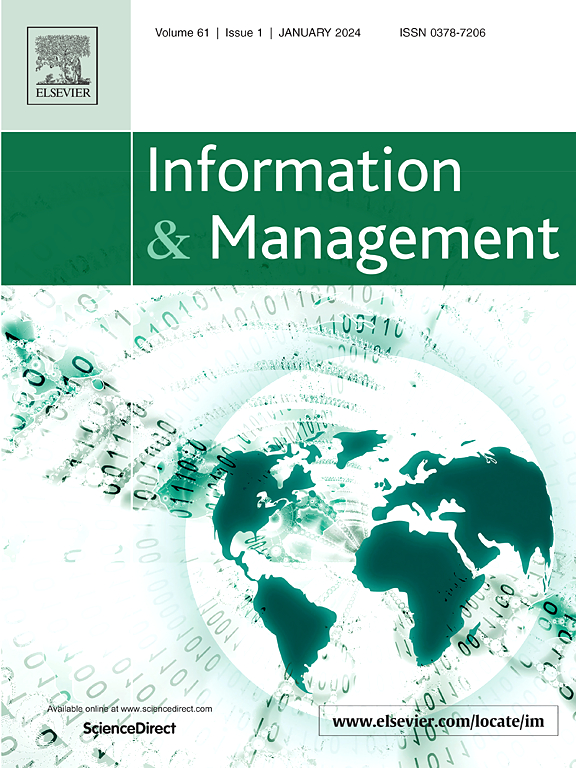在品牌的官方社交媒体账户或超级网红账户上宣传绿色产品?
IF 8.2
2区 管理学
Q1 COMPUTER SCIENCE, INFORMATION SYSTEMS
引用次数: 0
摘要
在社交媒体上可持续发展意识日益增强的背景下,本研究调查了品牌官方账号与超级影响者账号在绿色广告中的比较效果。利用细化似然模型(ELM),包括一项实地研究和五项实验在内的六项初步研究表明,品牌账户在培养消费者对绿色产品的好感态度方面更有效。品牌账户被认为是可信和权威的,更有可能引发中央路线处理,从而能够更深入地参与有关产品绿色属性的复杂技术信息。相比之下,超级影响者账户主要触发外围路线处理,依赖于启发式线索,如魅力和受欢迎程度,这在传达详细的可持续主张方面效果较差。该研究将阐述和信息可理解性确定为顺序中介,并表明上下文因素——如响应时间、反说服和对环境问题的心理距离——调节了账户类型的相对有效性。本研究通过澄清社交媒体账户类型在绿色营销中的不同作用,扩展ELM在该领域的应用,推进了理论认识。这些发现不仅对营销人员,而且对政策制定者和消费者权益团体在社交媒体上寻求有效和可信的环境信息提供了实际意义。本文章由计算机程序翻译,如有差异,请以英文原文为准。
Advertising green products on brands’ official social media accounts or mega-influencer accounts?
In the context of growing sustainability awareness on social media, this research investigates the comparative effectiveness of brand official accounts versus mega-influencer accounts in green advertising. Drawing on the Elaboration Likelihood Model (ELM), six primary studies, including one field study and five experiments, reveal that brand accounts are more effective in fostering favorable consumer attitudes toward green products. Brand accounts, perceived as credible and authoritative, are more likely to elicit central route processing, enabling deeper engagement with complex and technical information about products’ green attributes. In contrast, mega-influencer accounts primarily trigger peripheral route processing, relying on heuristic cues like charisma and popularity, which are less effective in conveying detailed sustainable claims. The research identifies elaboration and message understandability as sequential mediators, and shows that contextual factors—such as response timing, counter-persuasion, and psychological distance to environmental issues—moderate the relative effectiveness of account types. This research advances the theoretical understanding by clarifying the distinct roles of social media account types in green marketing and expanding the application of ELM in this domain. The findings offer practical implications not only for marketers, but also for policy-makers and consumer advocacy groups seeking in promote effective and credible environmental messaging on social media.
求助全文
通过发布文献求助,成功后即可免费获取论文全文。
去求助
来源期刊

Information & Management
工程技术-计算机:信息系统
CiteScore
17.90
自引率
6.10%
发文量
123
审稿时长
1 months
期刊介绍:
Information & Management is a publication that caters to researchers in the field of information systems as well as managers, professionals, administrators, and senior executives involved in designing, implementing, and managing Information Systems Applications.
 求助内容:
求助内容: 应助结果提醒方式:
应助结果提醒方式:


